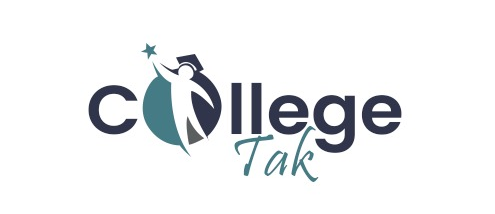About B.Tech (Big Data Analytics) Course
The B. Tech in Big Data Analytics is an undergraduate engineering program that lasts four years. Teaching students about current and emerging Big Data-related theories and techniques, such as statistics, data mining, data storage, and data visualization, is the main goal of this program.
Data structures, data analytics, and engineering mathematics are the main topics of the course. Active graduates of the course are recruited in fields like Design Engineering, Computing/IT Consultancy, and Solution-Building skills like System/Network Administrators or IT Managers.
Eligibility Criteria for B.Tech (Cloud Computing)
Candidates for the course must have completed their 12th grade with a minimum cumulative score of 50% from an accredited board, with mathematics, physics, and chemistry serving as the primary subjects. After that, in order to be admitted to this course, candidates must pass appropriate National or State level B. Tech entrance exams like JEE.
The best entrance exams for B. Tech candidates in big data analytics are:
- JEE
- UPESEAT
- VITEEE
- KCET
- HITSEEE
Admission Procedure for B. Tech (Big Data Analytics)
Bachelor’s degree admissions are also determined by entrance exams and merit.
- Exams such as JEE, UPESEAT, VITEEE, KCET, HITSEEE, and others are held to grant admission to the Bachelor’s programs of the best Indian colleges.
- To be eligible for Masters course, candidates must have completed their bachelor’s degree in Big Data Analytics with a 50% grade.
- A few universities also admit students based only on merit, taking into account their graduation percentage or cumulative grade point average.
B. Tech (CSE- Cloud Computing) Course Details
| Degree Level | Undergraduate |
| Duration | 4 years |
| Objective | This course’s primary goal is to introduce concepts related to computation and storage cloud analysis, design, and implementation. To comprehend the theoretical foundation required for cloud computing and storage environments. To be familiar with the technologies and development processes used in creating apps that will be made available and deployed via cloud computing environments. To be able to create cloud applications using IaaS software and implement cloud. Infrastructures using IaaS software. |
| Exam Type | Semester |
| Eligibility | Class 10+2 with 55% from a recognized board with PCM stream OR Computer Science as compulsory subject |
| Average Fees | 75 thousand to 4 Lakhs per annum |
| Selection Procedure | Entrance Exam, Merit base |
| Average Salary | 7.5 Lakhs INR to 17.6 Lakhs INR per Annum |
| Top Recruiters | IBM, Oracle, Apple, Microsoft, Aditya Birla Group, Michael Page, Dell, Amazon, VM Ware. |
| Employment Sectors | IT firms, multinational corporations, consulting firms, data science and analytics firms, engineering firms, software developers, etc. |
B. Tech (CSE- Cloud Computing) Syllabus
Below is a breakdown of the course syllabus by semester
Syllabus of 1st YEAR B. Tech (CSE- Cloud Computing)
| SEMESTER I | SEMESTER II |
| Logic Building and Problem Solving | Advanced Computer Programming (‘C’) |
| Physics I | Mathematics II |
| Mathematics I | Physics II |
| Environment Science | Chemistry |
| Manufacturing Science Lab | Computer Science Essentials. |
| Functional English | – |
Syllabus of 2nd Year B. Tech (CSE- Cloud Computing)
| SEMESTER III | SEMESTER IV |
| Java-Based Object-Oriented Programming Principles | Programming in Java |
| Data Structure with C | Utilizing Applied Statistics |
| Overview of Open Standards and Open Source Software | Fundamentals of Management Systems Based on Data |
| Organization and Architecture of Computers | Overview of Computer Networks |
| Operating System Principles | PHP for Web Programming |
Syllabus of 3RD year B. Tech (CSE- Cloud Computing)
| SEMESTER V | SEMESTER VI |
| Using Multidimensional Modeling and Data Warehouses | Improvement of Professional Skills |
| Predictive modeling and data mining | Commercial Astuteness |
| The Automata Theory | Design of Compilers |
| Overview of Algorithm Design Analysis | Artificial Intelligence |
| Programming Languages | Summer Training |
Syllabus of 4TH year B. Tech (CSE- Cloud Computing)
| SEMESTER VII | SEMESTER VIII |
| Analytics for Mobile and Social Media | Progression in Computer Architecture |
| Big Data Analytics | Overview of the Internet of Things |
| Project Management | Communication Techniques |
B. Tech (CSE- Cloud Computing) Scope
The growing demand for natural and organic products is a result of globalization which has paved the way for significant advancements in the fields of computer applications, electronics, healthcare, R&D, telecommunications, and more.
- In the public and private sectors, this has led to the creation of a significant amount of jobs in the field. Since it offers young people a promising career, many young people are becoming interested in it. Given that it operates in the service sector, providing the greatest and most advantageous product to its clients is the primary goal of this company.
- A solid foundation in computer applications, electronics, healthcare, R&D organizations, telecommunications, and other areas is provided by this course.
- Obtaining these abilities will open up a wide range of career options in disciplines like cloud architecture, cloud system administration, cloud support engineering, project engineering, cloud sales, and more.
B.Tech (CSE- Cloud Computing) Job, Placement & Salary
As cloud computing takes hold in the business world, job seekers and employers are becoming more interested in candidates who have completed courses in cloud computing. Examine the following cloud computing job profiles.
- Cloud Architect: Create and carry out cloud-based projects to guarantee scalable, dependable, secure systems that meet organizational objectives.
- Cloud Support Engineer: The person in charge of maintaining the cloud computing systems is the cloud support engineer. Technical computer programming and work about computer hardware are also included.
- Project Engineer: The schedule, preliminary planning, and resource allocation for engineering and other technical tasks fall within the purview of the project engineer. They oversee the members of the project team and their needs as well.
- Cloud Sales: The task of creating a sales strategy that aids in achieving organizational objectives falls to cloud sales. Additionally, maintains the sales culture by coordinating the teams of technical, procurement, and finance and exchanging and integrating best practices.
- Cloud Service Developer: The task of developing apps that can be served on the cloud falls to cloud service developers. They create virtual systems evaluate the needs of their clients, design systems, code, etc. to solve issues.
- Cloud System Administrator: A cloud system administrator oversees the instances of cloud infrastructure services and works in mixed windows environments.
Examine the job positions and their average annual salary in the table below:
| Job Profile | Approx. Salary |
| Cloud Architect | Approx. 6 Lakhs to 22.5 Lakhs per Annum |
| Cloud Support Engineer | Approx. 2.4 Lakhs to 20 Lakhs per Annum |
| Project Engineer | Approx. 5.3 Lakhs 8.4 Lakhs per Annum |
| Cloud Sales | Approx. 7 Lakhs to 18.2 Lakhs per Annum |
| Cloud Service Developer | Approx. 10.8 Lakhs to 27 Lakhs per Annum |
| Cloud System Administrator | Approx. 6 Lakhs to 16 Lakhs per Annum |





